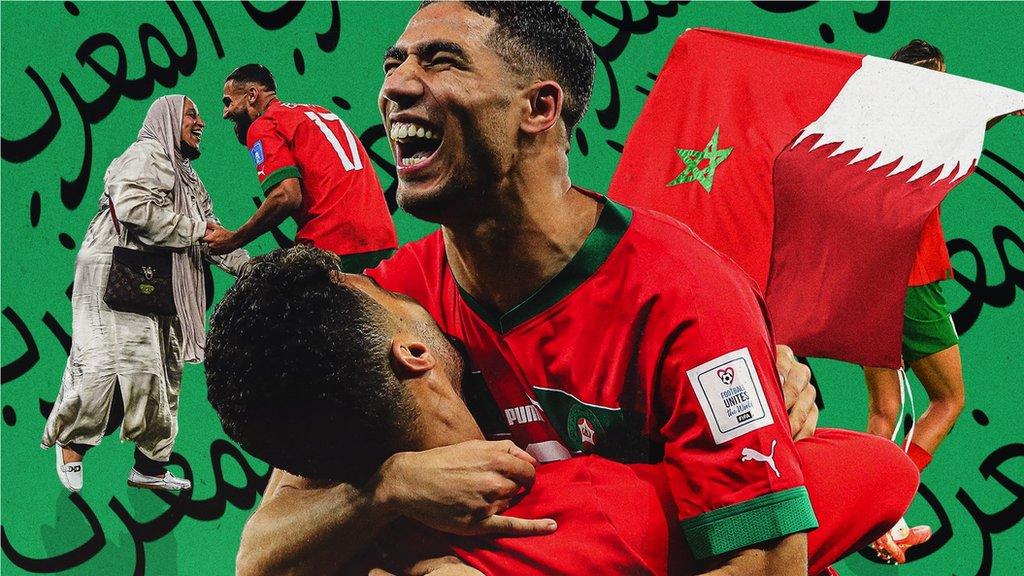France v Morocco: World's support behind Atlas Lions for semi-final
- Published
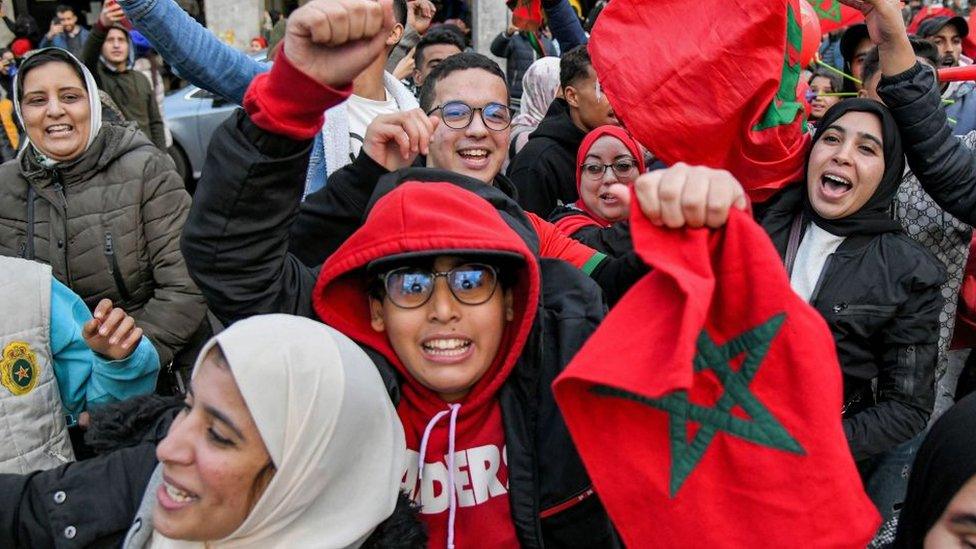
When Morocco face France in their World Cup semi-final on Wednesday night, it won't just be fans in Qatar and at home cheering them on - the team are gathering support around the globe ahead of the match.
"It's our first time to reach this stage of the World Cup, the semi-final is a big event for us, inshallah, we will win," Karim Trioua, 36, a shop owner in Morocco's largest city, Casablanca, says.
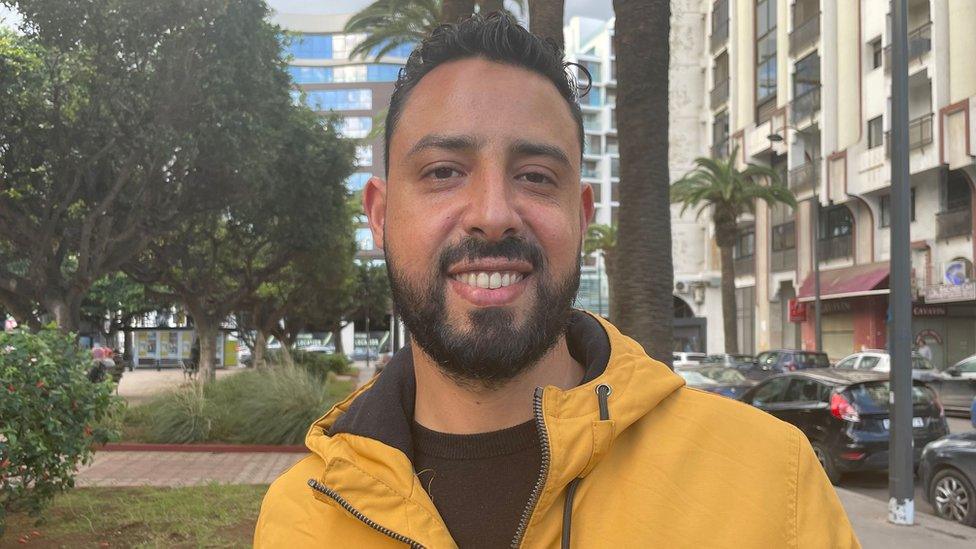
Like many fans in Casablanca, Karim has faith Morocco can go through
Like many football fans there, he has knots in his stomach ahead of the match. Others describe how they barely slept last night, anticipating the game.
"It's a matter of pride," says student, Elisée Fataki, 21, who is toying with the idea of his country making it all the way to Sunday's final. "You have to see it to believe it - if you don't have faith, it will never happen. Today, we see that it is possible for us to win too."
Flag-sellers are already outside the country's biggest stadium, the King Mohammed V complex. So many fans are expected at the fan zone there, organisers plan to close the gates four hours before kick-off, to avoid overcrowding.
Many Moroccans will leave work earlier than usual. In a city where cafe culture is huge, they will head to Casablanca's coffee shops, where owners are setting out chairs in front of large screens.
Casablanca is Morocco's economic and major international transport hub. It has one of the largest ports in Africa and worldwide brands and banks have their African headquarters there.
Its residents hope Morocco kicking through a glass ceiling by making it to the semi-finals will prove to be a watershed moment that will pave the way for African teams to progress in future tournaments.
For the first time in the World Cup history, all the African teams who qualified had African coaches. And some feel this is the turning point. Morocco's success has largely been credited to its coach, Walid Regragui, described as a pan-Africanist at heart.
His players speak a range of languages, including French, Dutch and English, and sit at the intersection of many identities in the global South. They are African, Muslim, Arab and, in some cases, part of the diaspora. And this mix of identities has helped the Atlas Lions gain support from so many places.
Hashtags celebrating the team, such as #DimaMaghrib, #AtlasLions or simply #Mar, have been widely used across Africa.
Kenya's NTV has hosted a discussion on Morocco's "World Cup miracle", while South Africa's SuperSport website predicted the team "will command ear-splitting support at the Al Bayt Stadium", which hosts the semi-final.
Sports commentators in South Africa know "they will need every bit" of that support to beat defending champions France and continue "their fairy-tale run". But there has been praise for the team's spirit and the huge investments in football made by the government and the Moroccan king.
For the Nigerian press, the Atlas Lions have won "the hearts of neutral fans", external at the World Cup and "Morocco now represent so much more than its own nation, as its achievements united a region and continent in celebration"., external
And because Morocco is both an African and Arab nation, the team will shoulder the hopes of millions of people around the globe when they step on to the pitch.
It was clear after their shock quarter-final win over Portugal, the Middle East Eye noted, external, the World Cup created a sense of Arab unity - even among regional rivals. "When an Arab team plays, Arab fans, regardless of their state nationalism, gear up to rally behind that team," it said.
The Palestinian flag has also been a feature of team and supporter celebrations. Palestinians are firmly behind the Moroccan team, with President Mahmoud Abbas calling the win against Portugal "a victory for all Arabs and Palestinians".
In the story of the tournament, an Arab nation has used the platform of a global showpiece on Middle Eastern soil to raise an issue that means a great deal to many in the region.
And now in Gaza, there is unprecedented demand for Moroccan flags.
"We just weren't anticipating such demand, because people didn't expect an Arab team to go this far in the World Cup," Gaza City flag dealer Tareq Abu Dayyeh says.
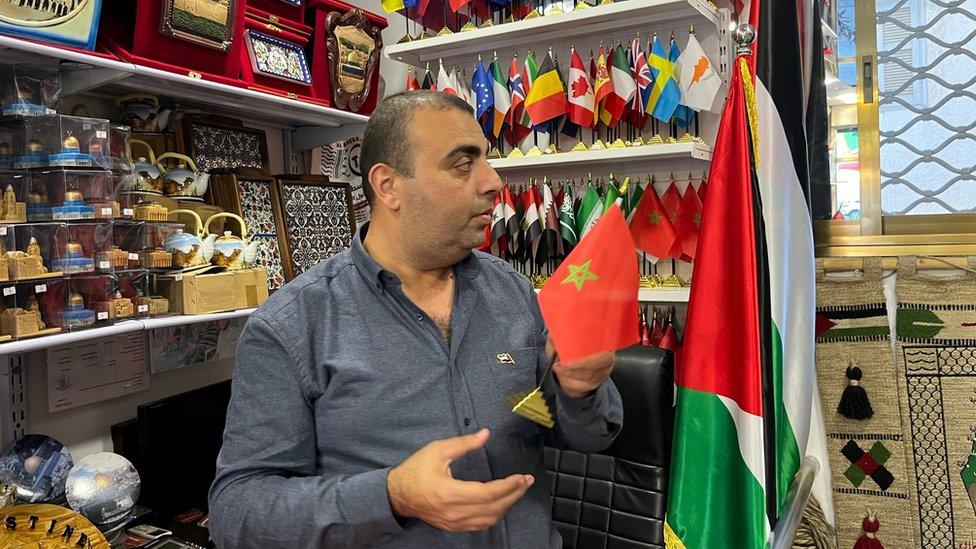
Demand for Moroccan flags is flying high in Gaza
Morocco's progress is even creating new football fans here - with one asking our reporter how long the match would be?
"Don't be surprised," the new fan says. "This is the first time in my life I've watched a match - but Morocco deserve to win."
Colonial rule
Across Europe, young Moroccans have been out celebrating as the team has progressed past Belgium, Spain and Portugal.
Taking on France, for a place in the final against Argentina, means even more.
Morocco gained independence in 1956, after 44 years of colonial rule as a French protectorate. Relations since have largely been good - but in 2020, France began limiting visa numbers, affecting jobseekers and family visits.
On Wednesday night, French authorities are deploying 10,000 police, half in the Paris region, just in case celebrations, or sorrows, get out of hand.
The two teams have played several friendlies - but the Atlas Lions are yet to beat France. Much hangs on Wednesday-night's semi-final.
Additional reporting by Paul Brown, Rushdi Abualouf and Paul Kirby.
Related topics
- Attribution
- Published13 December 2022
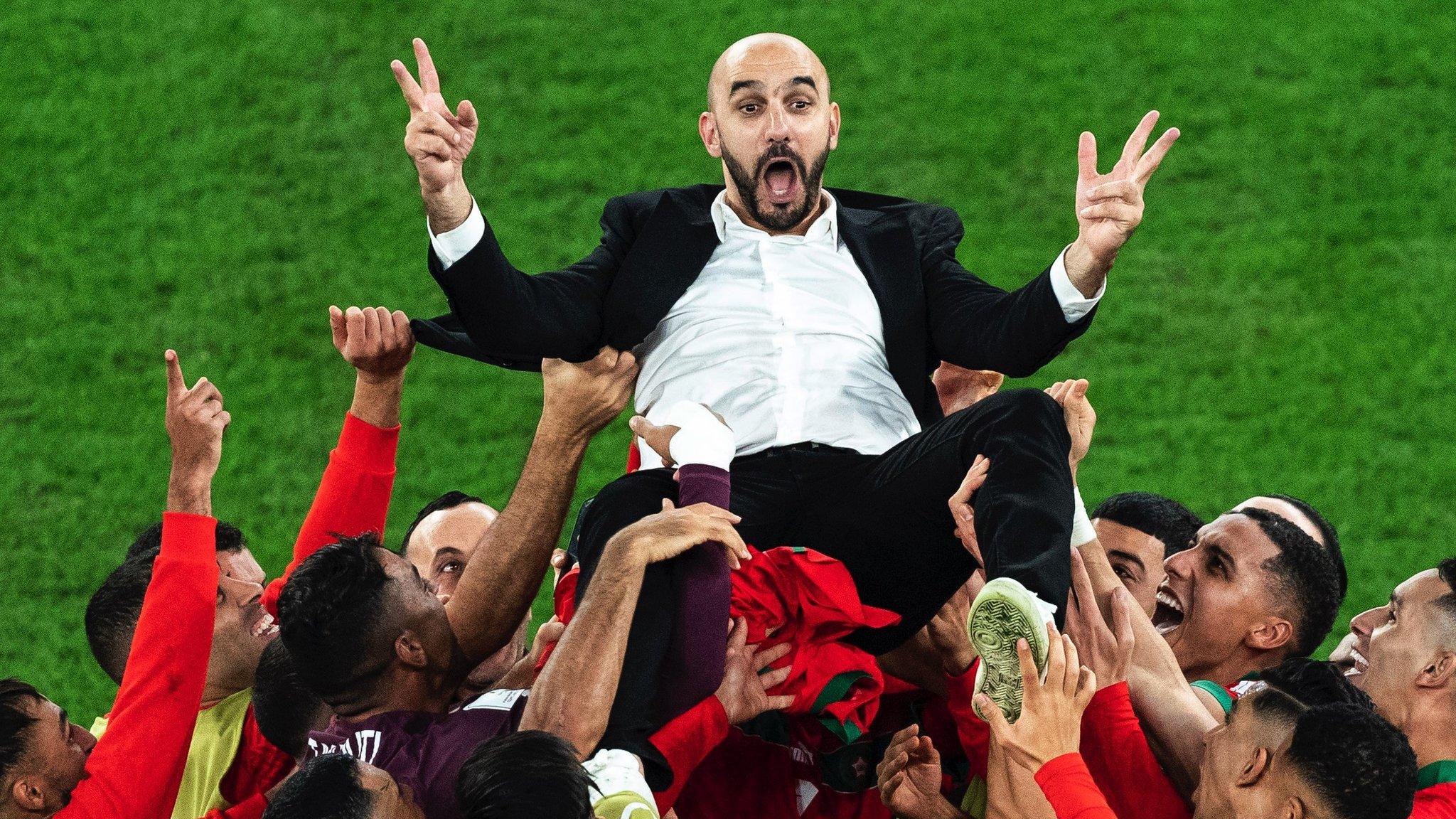
- Attribution
- Published13 December 2022
